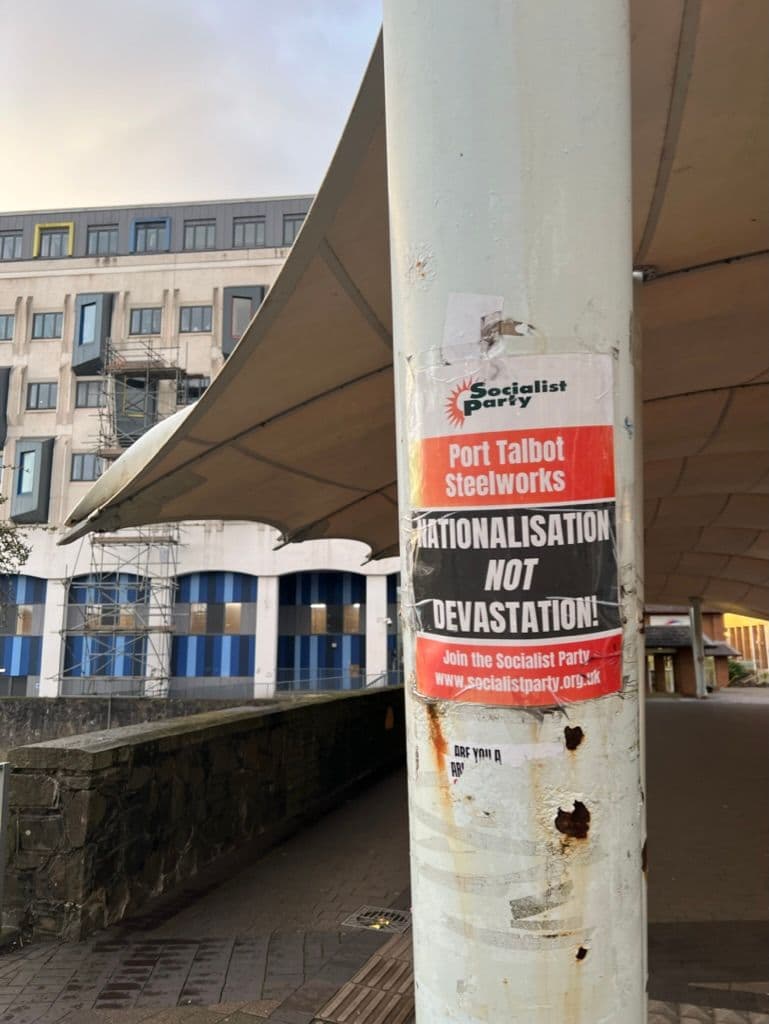
«As Long as We Beat the English» Rugby als Form des Widerstandes in Wales
[English version below]
Die kollektiven Erinnerungen an vergangene und anhaltende Ungerechtigkeiten stärken den Patriotismus und die Solidarität unter der walisischen Bevölkerung. Rugby dient als Medium, Widerstand auszudrücken und die kulturelle Identität zu bekräftigen. Dabei bietet die Rivalität eine gesellschaftlich akzeptierte Plattform für diesen Widerstand, verweist jedoch auch auf die Komplexitäten und potenziellen Spannungen innerhalb des Vereinigten Königreichs.
Jedes Jahr im Februar und März begeistert die Men’s Six Nations Rugby Championship sechs europäische Nationen: England, Schottland, Wales, Irland, Frankreich und Italien. Fans strömen in die Stadien, während Bars und Pubs mit enthusiastischen Anhänger:innen gefüllt sind. Auch wenn der Gewinn des Grand Slams das ultimative Ziel ist, betrachten einige Teams bereits einen Sieg über England als grossen Erfolg. Dies wird humorvoll in einem BBC-Werbespot eingefangen, der oft während des Turniers in den sozialen Medien kursiert: «It’s not about who you want to win, it’s about who you want to lose».
England gilt in kulturellen Stereotypisierungen unter Rugby-Fans oft als arrogant. Diese Wahrnehmung führt dazu, dass die anderen Nationen sich gegen diesen gemeinsamen Gegner verbünden. Für Schottland, Wales und Irland ist die Rivalität mit dem Nachbarn jedoch auch historisch verwurzelt. Im Rahmen meines Dissertationsprojekts zum Umgang mit Krisen im deindustrialisierten Südwales stiess ich in meinen teilnehmenden Beobachtungen und Interviews immer wieder auf tiefsitzende Ressentiments gegenüber England, die auch im Rugby sichtbar werden.
Die Rolle von Rugby in Wales
Rugby ist in Wales – anders als in anderen Teilen der Britischen Inseln – weitgehend ein Sport der Arbeiter:innenklasse. Insbesondere in den Bergbauorten, die während der industriellen Revolution entstanden sind, wurde Rugby zu einem zentralen Bestandteil des Gemeinschaftslebens. Die Kohlebergwerke prägten das Leben in Südwales, und die Rugbyvereine entstanden oft als Teams von Arbeitern. Terry Cobner, ein ehemaliger Spieler für das walisische Nationalteam, der in Blaenavon aufwuchs, erinnert sich: «I played with a number of miners at Pontypool and Wales and they definitely brought a certain mental toughness to the game. That is something you cannot instil into a player - it is a product of environment».[i]
Im Zuge des Niedergangs der Industrie in Wales wurde Rugby zu einer Art Ersatz für die körperlich harte Arbeit in den Minen. So haben einige meiner Gesprächspartner:innen erwähnt, dass sie zwar nicht mehr, wie ihre Eltern oder Grosseltern, in sogenannten «proper» Jobs arbeiten, sie sich durch Rugby aber trotzdem mit ihren Werten und dessen kulturellen Bedeutung verbunden fühlen:
«It's that ethos of let's make something. And I think that's why Rugby is such a big sport in Wales, because you could- Not having worked down the mines myself (laughing)- But as our guide said in the Big Pit: ‘You could trust the man to the right and to your left and you could just work with them all day.’ It's the same philosophy you have in Rugby. You need to be able to trust the boy to your right and to your left and behind you and in front of you, because the way you want to go is forward. […] It's like a jigsaw piece, mining and rugby, and I think that's why that's our national sport, isn't it? And I think that links into the industrial past but also present that we have». (Bewohner aus Llandyl[ii])
In den Kohlebergwerken Südwales’ arbeiteten die Männer Seite an Seite unter harten und oftmals lebensbedrohlichen Bedingungen, wobei sie sich stets aufeinander verlassen mussten, um die täglichen Herausforderungen zu meistern. Diese Erfahrung schuf ein starkes Gefühl der Solidarität und des Zusammenhalts, welches wiederum die sozialen Strukturen und das Gemeinschaftsleben der Bergarbeiter:innen stark prägte. Die Kameradschaft, die einst in den Kohleminen zu spüren war, wird nun auf dem Rugbyfeld weitergeführt.
Wales als Kolonialgebiet von England?
Der industrielle Niedergang in Wales, oft mit Margaret Thatchers Politik in den 1980er-Jahren verknüpft, führte zur Schliessung zahlreicher Kohleminen und zum Ende einer goldenen Ära der walisischen Industrie. Diese Entscheidungen, die als „anti-Arbeiter:innenklasse“ wahrgenommen wurden, verursachten nicht nur wirtschaftliche Verwerfungen, sondern zerstörten auch die sozialen Netzwerke, die sich um die Minen gebildet hatten. Die Schliessungen bedeuteten für viele Familien den Verlust ihrer Existenzgrundlage, was die Gemeinschaften dazu zwang, ihre Identität und ihren Zusammenhalt neu zu definieren.
Der Groll gegen England rührt von dieser Geschichte der sozioökonomischen Umwälzungen her. Die walisische Identität ist geprägt von einer kolonialen Vergangenheit, da Wales seit der Eroberung durch Edward I. im 13. Jahrhundert unter englischer Herrschaft steht.[iii] Mit den „Acts of Union“ (1536 und 1543) wurde Wales vollständig in das englische Königreich integriert, wobei die walisische Sprache und das Rechtssystem weitgehend unterdrückt wurden. Während Wales eine zentrale Rolle in der industriellen Revolution spielte, wurden seine Industrien unter Thatchers Regierung systematisch abgebaut (ein Interviewpartner beschreibt diese Periode als «smashing up of the industries»), was das Gefühl von Vernachlässigung und Verrat verstärkte.
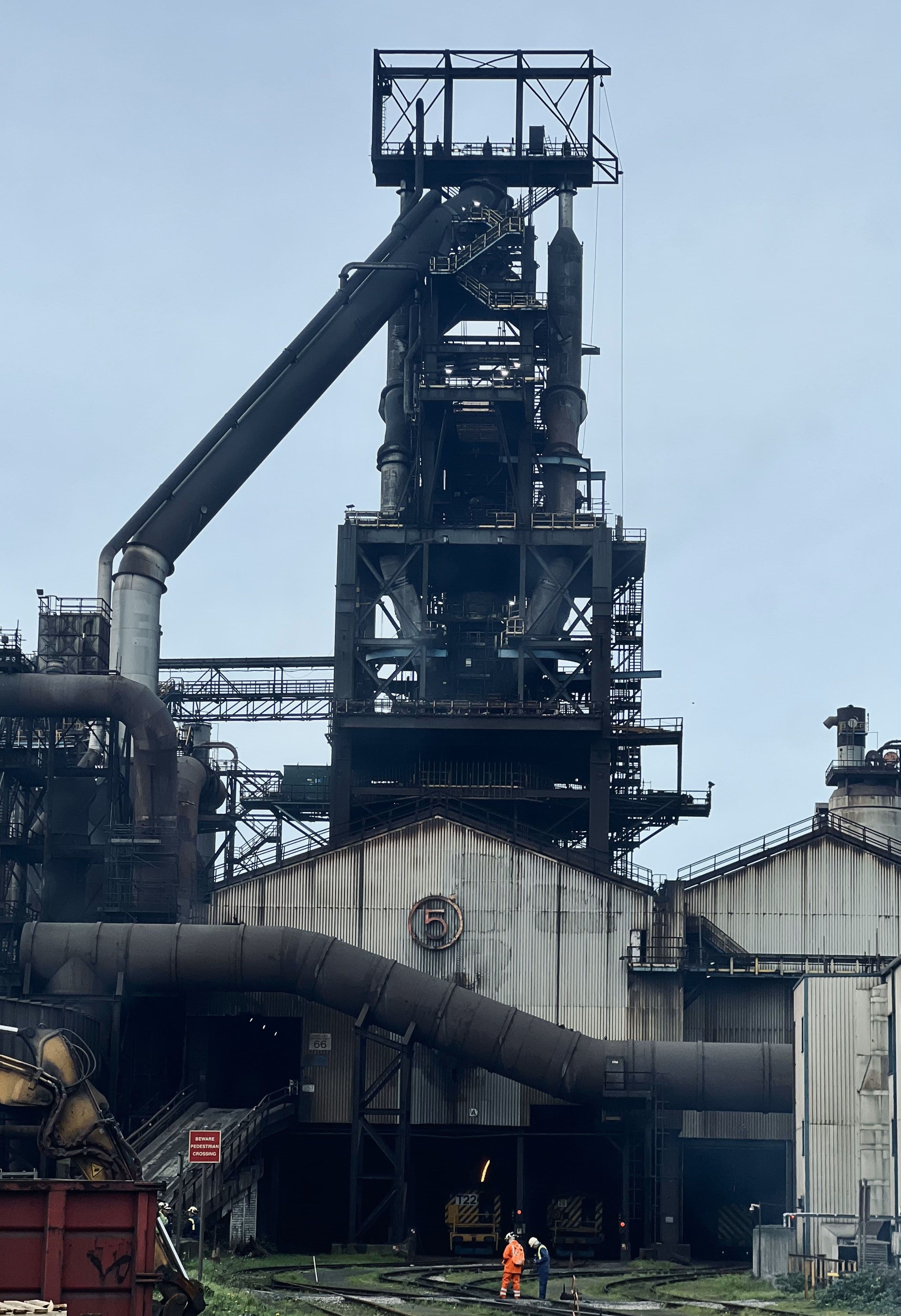
Jüngste Ereignisse, wie die Schliessung der Hochöfen von Tata Steel in Port Talbot im Jahr 2024, verdeutlichen die anhaltenden Ungleichheiten innerhalb des Vereinigten Königreichs. Die Stilllegung der Hochöfen bedrohte nicht nur die Existenz vieler Familien, sondern erschütterte auch eine Gemeinschaft, die eng mit der Stahlindustrie verbunden ist. Ein Arbeiter äusserte seine Frustration:
«It doesn’t have to be that way. With the right investment and government support, there’s potential to grow the steel industry and everything around it. There’s talk of a transition fund for communities affected by changes, but similar promises were made to Ebbw Vale and never materialised. We need proper support and intervention to secure a brighter future» (Tata Steel Arbeiter).
Diese Sichtweise zieht sich durch ganz Wales, wo nach dem Brexit viele Infrastrukturprojekte, wie die Swansea Bay Tidal Lagoon, eingestellt wurden, während Investitionen weiterhin vorwiegend nach London und Südostengland fliessen.
Die Kultur des Widerstands
Die walisische Abneigung gegen England ist nicht nur ein Ausdruck von Frustration, sondern auch ein Zeichen einer Traditionslinie des walisischen Widerstands. In der walisischen Geschichte gibt es zahlreiche Beispiele für Aufstände und Widerstandsbewegungen gegen die englische Herrschaft. So ist der mythisierte Owain Glyndŵr, der letzte einheimische Prinz von Wales, der im frühen 15. Jahrhundert gegen das englische Königreich rebellierte, ein Symbol des Widerstands. Sein Vermächtnis wird jährlich am 16. September gefeiert und dient als Erinnerung an den anhaltenden Kampf um Anerkennung und Identität.
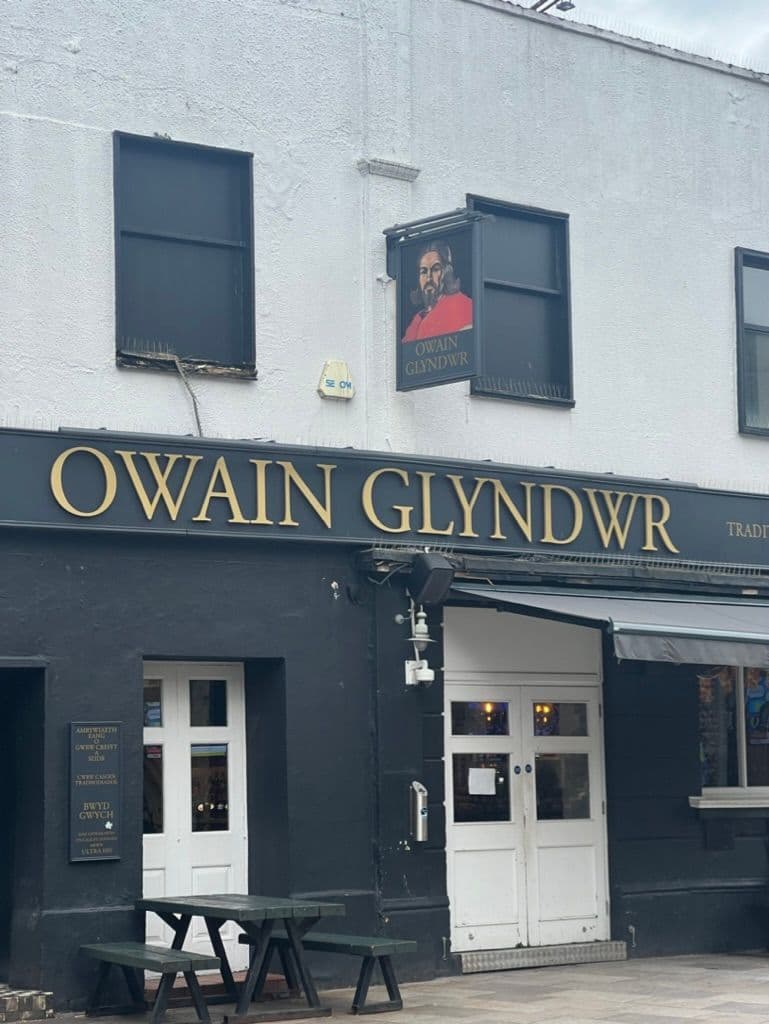
Ähnlich verhielt es sich bei den Bergarbeiterstreiks von 1984/85, die sich gegen Thatchers Minenschliessungen richteten. Diese Streiks waren nicht nur wirtschaftliche Kämpfe, sondern auch ein Ringen um die soziale und kulturelle Identität der walisischen Arbeiter:innenklasse. Die Konfrontationen mit der Polizei und die Gemeinschaftssolidarität, die daraus hervorging, sind ein zentraler Bestandteil der modernen walisischen Geschichte.

In jüngster Zeit können verstärkt Demonstrationen beobachtet werden. Plakate, welche die Nationalisierung der Stahlindustrie forderten, prägten das Stadtbild von Port Talbot und Reden der Gewerkschaften riefen die Arbeiter:innen und die Gemeinschaft dazu auf, für den Erhalt der Stahlindustrie und die Zukunft der Region zu kämpfen. Ein geplanter Streik zur Sicherung der Stahlindustrie wurde abgesagt, nachdem Tata mit einer vorzeitigen Stilllegung der Hochöfen gedroht und gleichzeitig neue Verhandlungen über Investitionen in Aussicht gestellt hatte. Am 30. September 2024 wurde der letzte Hochofen in Port Talbot stillgelegt. Nichtsdestotrotz repräsentiert dies den kollektiven Widerstand:
«It invokes anger, passion, and the fight. People want to stand up and be counted, to fight for their livelihoods and jobs. Others are more apathetic, which depends on their age and upbringing. If they've never experienced the class struggle or had to decide between paying the gas bill or buying food, they're less likely to fight because they don’t know life without security» (Tata Steel Arbeiter).
Das Zitat zeigt, wie stark die Schliessungen bei Tata Emotionen wie Wut und Leidenschaft auslösen und die Menschen mobilisieren. Heather Love betont in ihrer Affekttheorie die Bedeutung vergangener Erfahrungen und Verletzungen für gegenwärtige und zukünftige Handlungsfähigkeit.[iv] Ann Cvetkovichs Konzept der «archives of feelings» lässt sich auf die walisische Kultur des Widerstands übertragen, in der die Erinnerung an die Nöte der industriellen Ära tief verankert ist.[v] Diese emotionalen Archive prägen den walisischen Widerstand und motivieren Gemeinschaften, sich gegen aktuelle Ungerechtigkeiten zu wehren.
Das Zitat verdeutlicht zudem, wie wichtig es ist, die Lebensumstände und Erfahrungen der Menschen zu berücksichtigen, um ihr Verhalten und ihre Reaktionen auf soziale und wirtschaftliche Krisen zu verstehen. Das Klassenbewusstsein und solidarische Handeln der Arbeiter:innenklasse sind eng mit der Bereitschaft zum Engagement verknüpft. Wie im obigen Zitat angedeutet, bleibt diese Bereitschaft jedoch häufig aus, wenn Menschen den «class struggle» nicht am eigenen Leib erfahren haben. Insbesondere bei jenen, die nie mit Unsicherheit leben oder existenzielle Entscheidungen treffen mussten, zeigt sich oft eine Entpolitisierung, die sich auf ihre Solidarität und ihr Engagement auswirkt.
Sport als Bühne des Widerstands
Im walisischen Rugby spiegelt sich der Klassenkampf wider. Die Spiele gegen England bieten eine Plattform für symbolischen Widerstand gegen historische Unterdrückung und wirtschaftliche Benachteiligung. Ganz im Sinne von James C. Scott kann die Rivalität im Rugby als eine «everyday form of resistance» verstanden werden.[vi]
Die Beziehung zwischen Wales und England ist durch eine tiefe historische Komplexität geprägt, die bis in die Gegenwart reicht. Anhaltende Ungleichheiten in der Finanzierung und Wahrnehmung wirken als Katalysatoren für die Stärkung der walisischen Identität und Kultur. Die Rivalität im Rugby ist ein lebendiges Beispiel dafür, wie Sport als Ausdrucksmittel für tiefere soziale und politische Spannungen dienen kann. Es schafft Räume für sozial akzeptierten Widerstand. In diesem Sinne ist die walisische Reaktion auf diese Ungleichheiten sowohl eine Herausforderung als auch eine Bestätigung ihrer einzigartigen Stellung innerhalb des Vereinigten Königreichs.
Diese Perspektive reflektiert jedoch auch eine spezifisch walisische Sichtweise, die stark von Patriotismus und überlieferten historischen Erzählungen geprägt ist. Während die Waliser:innen in ihrem Widerstand gegen England ein starkes Gemeinschaftsgefühl und nationale Identität bewahren, kann dieser einseitige Blick zur Verfestigung von Stereotypen und Vorurteilen führen. Der walisische Patriotismus, der sich oft im Rugby manifestiert, ist somit sowohl ein Ausdruck der Stärke als auch eine potenzielle Quelle von Spannungen innerhalb des Vereinigten Königreichs.
Und so bleibt der Spirit des walisischen Teams und seiner Fans von Jahr zu Jahr derselbe: «As long as we beat the English, we don't care» (Lyrics der walisischen Band Stereophonics).
English translation
‘As Long as We Beat the English’: Rugby as a form of resistance in Wales
The collective memories of past and ongoing injustices strengthen patriotism and mutual solidarity in Welsh society. Rugby serves as a medium for expressing resistance and affirming cultural identity. In doing so, the rivalry provides a socially accepted platform for this resistance, but also highlights the complexities and potential tensions within the United Kingdom.
Each year in February and March, the Men's Six Nations Rugby Championship captivates six European nations: England, Scotland, Wales, Ireland, France and Italy. Fans flock to the stadiums, while bars and pubs are filled with enthusiastic supporters. While winning the Grand Slam is the ultimate goal, some teams consider a victory over England a great success in itself. This sentiment is humorously captured in a BBC advert that often circulates on social media during the tournament: ‘It's not about who you want to win, it's about who you want to lose’.
England is often seen as a strong opponent and stereotyped among rugby fans as arrogant, a perception that leads other nations to unite against this common opponent. For Scotland, Wales, and Ireland, the rivalry with their neighbour is also rooted in history. As part of my dissertation project on coping with crises in deindustrialised South Wales, my participant observations and interviews repeatedly revealed deeply rooted resentments towards England, which are also reflected in rugby.
Rugby’s role in Wales
In Wales, rugby - unlike in other parts of the British Isles - is predominantly considered a working class sport. Particularly in mining communities that developed during the industrial revolution, rugby became a central part of community life. Coal mining defined life in South Wales, and rugby clubs often emerged as teams formed by miners. Terry Cobner, a former player for the Welsh national team who grew up in Blaenavon, recalls: ‘I played with a number of miners at Pontypool and Wales and they definitely brought a certain mental toughness to the game. That is something you cannot instil into a player - it is a product of environment’.[vii]
Following industrial decline in Wales, rugby became a sort of substitute for the physically hard labour in the mines. Some of the people I spoke to during my fieldwork mentioned that although they no longer worked in what they called “proper” jobs like their parents or grandparents, they still remain connected to their values and cultural significance through rugby:
‘It's that ethos of let's make something. And I think that's why Rugby is such a big sport in Wales, because you could- Not having worked down the mines myself (laughing)- But as our guide said in the Big Pit you could trust the man to the right and to your left and you could just work with them all day. It's the same philosophy you have in Rugby. You need to be able to trust the boy to your right and to your left and behind you and in front of you, because the way you want to go is forward. [...] It's like a jigsaw piece, mining and rugby, and I think that's why that's our national sport, isn't it? And I think that links into the industrial past but also present that we have’ (resident from Llandyl[viii])
In the coal mines of South Wales, men worked side by side in harsh and often life-threatening conditions, always relying on each other to face the daily challenges. This fostered a strong sense of solidarity and cohesion that shaped the miners’ social structures and community life. The camaraderie once felt in the coal mines is now continued on the rugby pitch.
Wales as England’s Colony?
The industrial decline in Wales, often associated to Margaret Thatcher's policies in the 1980s, resulted in the closure of numerous coal mines and the end of a golden era of Welsh industry. These decisions, which were perceived as ‘anti-working class’, not only caused economic upheaval but also dismantled the social networks that had formed around the mines. For many families, the closures meant the loss of their livelihoods, forcing communities to redefine their identity and cohesion.
The resentment towards England stems from this history of socio-economic upheaval. Welsh identity is shaped by a colonial past, as Wales has been under English rule since Edward I’s conquest in the 13th century.[ix] The ‘Acts of Union’ (1536 and 1543) fully integrated Wales into the English kingdom, suppressing the Welsh language and legal system. While Wales played a central role in the industrial revolution, its industries were systematically dismantled under Thatcher's government (as one interviewee vividly described this period as “smashing up the industries”), deepening feelings of neglect and betrayal.
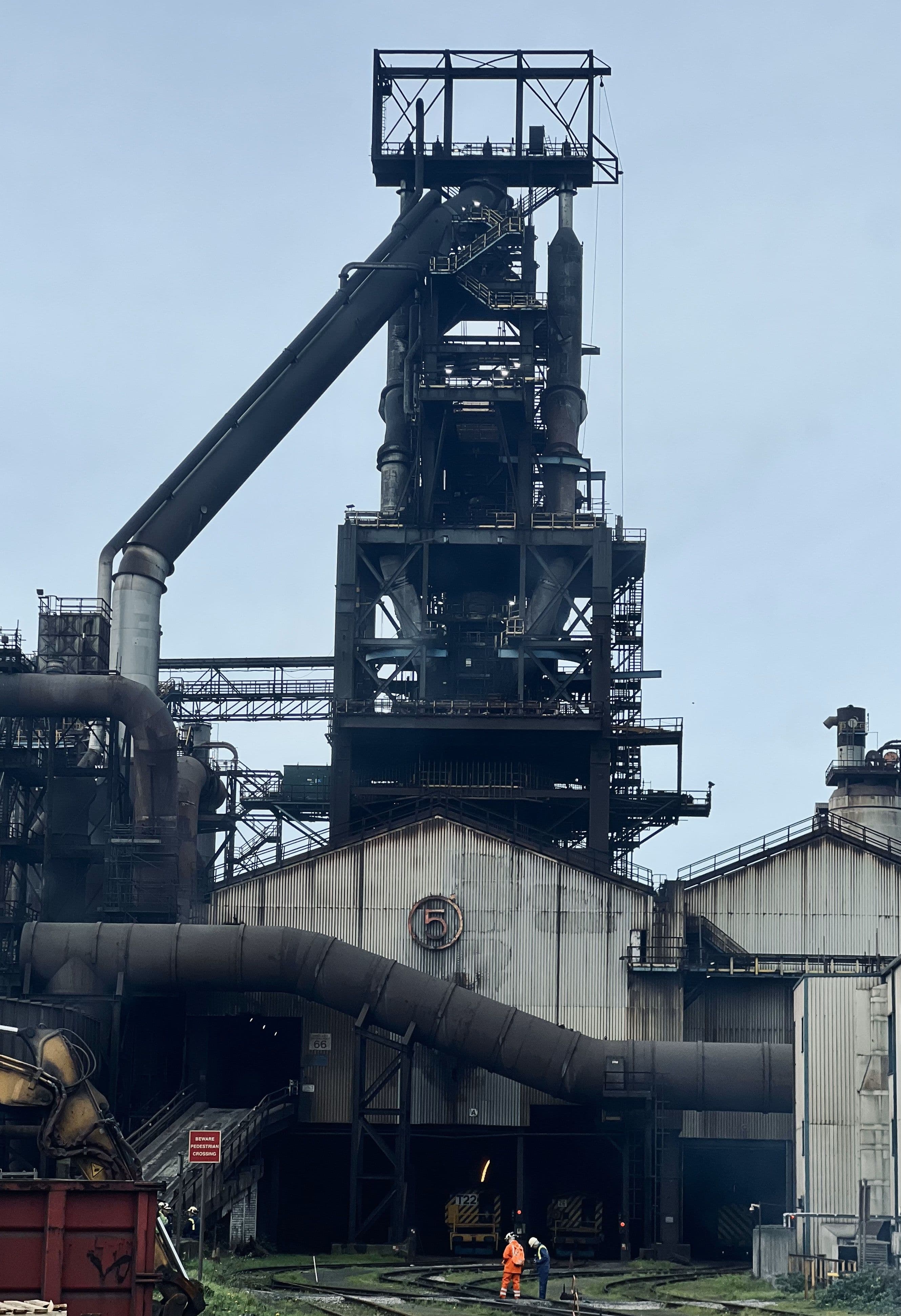
Recent events, such as the closure of Tata Steel's blast furnaces in Port Talbot in 2024, underscore the ongoing inequalities within the United Kingdom. The closure not only threatened the livelihoods of many families, but also shook a community closely linked to the steel industry. One worker expressed his frustration:
‘It doesn't have to be that way. With the right investment and government support, there's potential to grow the steel industry and everything around it. There's talk of a transition fund for communities affected by changes, but similar promises were made to Ebbw Vale and never materialised. We need proper support and intervention to secure a brighter future’ (Tata Steel employee).
This perspective resonates across Wales, where many infrastructure projects, such as the Swansea Bay Tidal Lagoon, have been cancelled post-Brexit, while investment continues to flow predominantly into London and South East England.
The Culture of Resistance
Welsh antipathy towards England is not only an expression of frustration, but also a testament to a culture of resistance. In Welsh history, there are numerous examples of uprisings and resistance movements against English rule. For example, the mythologised Owain Glyndŵr, the last native Prince of Wales who rebelled against the English kingdom in the early 15th century, remains a symbol of resistance. His legacy is celebrated annually on September 16th and serves as a reminder of the ongoing struggle for recognition and identity.
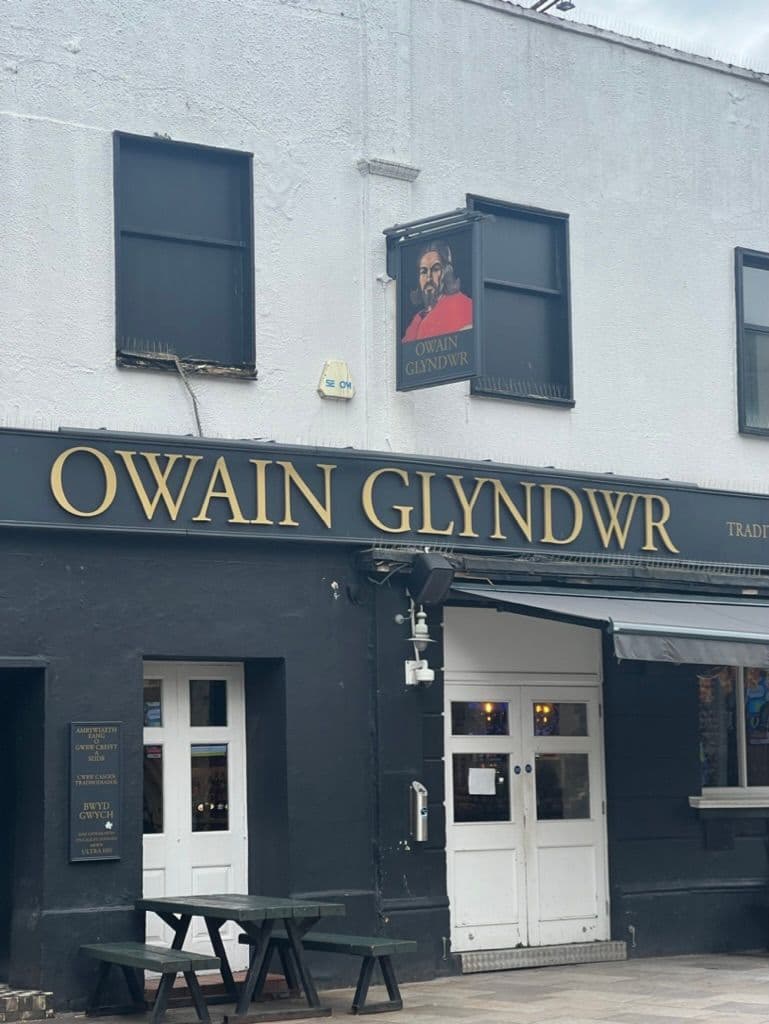
Similarly, the 1984/85 miners' strikes against Thatcher's pit closures were not merely economic battles but also struggle for the social and cultural identity of the Welsh working class. The confrontations with the police and the community solidarity that emerged from them remain central to modern Welsh history.
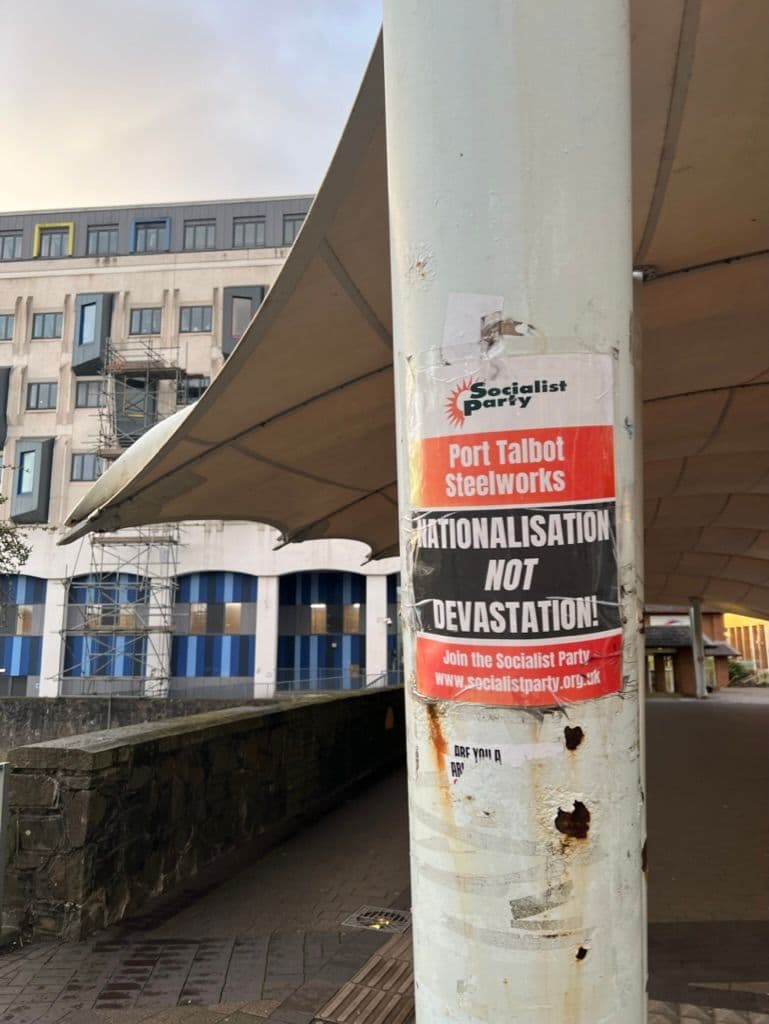
In recent times, an increase in protests can be observed. Posters calling for the nationalisation of the steel industry have become a common sight in the town of Port Talbot over the course of this year. Speeches of trade unions have mobilised workers and the community to fight for the survival of the steel industry and the future of the region. A planned strike was called off after Tata threatened an early closure of the blast furnaces while simultaneously promising new investment negotiations. On 30 September 2024, the last blast furnace in Port Talbot was shut down. Nonetheless, this reflects the spirit of collective resistance:
‘It invokes anger, passion, and the fight. People want to stand up and be counted, to fight for their livelihoods and jobs. Others are more apathetic, which depends on their age and upbringing. If they've never experienced the class struggle or had to decide between paying the gas bill or buying food, they're less likely to fight because they don't know life without security’ (Tata Steel employee).
This quote illustrates the extent to which Tata’s closures evoke emotions such as anger and passion, in mobilising people. Heather Love’s affect theory highlights the importance of past experiences and wounds for present and future agency.[x] Ann Cvetkovich's concept of ‘archives of feelings’ can be applied to the Welsh culture of resistance, in which the memories of the hardships of the industrial era remain deeply embedded.[xi] These emotional archives shape Welsh resistance and motivate communities to confront current injustices.
The quote also highlights the importance of considering people's circumstances and experiences in order to understand their behaviour and reactions to social and economic crises. Class consciousness and solidarity of the working class is closely linked to a willingness to engage. However, as indicated in the quote above, this willingness often fails to materialise if people have not experienced the ‘class struggle’ first-hand. In particular, those who have never had to live with insecurity or make existential decisions are often depoliticised, which has an impact on their solidarity and commitment.
Sport as a platform for resistance
This class struggle is mirrored in Welsh rugby. Matches against England provide a platform for symbolic resistance against historical oppression and economic disadvantage. In the spirit of James C. Scott, the rivalry in rugby can be understood as an ‘everyday form of resistance’.[xii]
The relationship between Wales and England is deeply complex and historically rooted. Ongoing inequalities in funding and representation act as catalysts for strengthening Welsh identity and culture. The rivalry in rugby is an example of how sport can serve as a means of expression for deeper social and political tensions. It creates spaces for socially acceptable resistance. In this sense, the Welsh response to these inequalities is both a challenge and a reaffirmation of their unique position within the UK.
However, this perspective also reflects a specifically Welsh point of view, which is strongly characterised by patriotism and inherited historical narratives. Whilst the Welsh retain a strong sense of community and national identity in their resistance towards England, this one-sided view can reinforce stereotypes and prejudices. Welsh patriotism, which often manifests itself in rugby, is therefore both an expression of strength and a potential source of tension within the UK.
And so, the spirit of the Welsh team and its fans remains the same year after year: ‘As long as we beat the English, we don't care’ (lyrics by the Welsh band Stereophonics).
Literatur | Literature
Cvetkovich, A. (2003). Archive of feelings (Vol. 2008). Durham, NC: Duke University Press.
Love, H. (2009). Feeling backward. Harvard University Press.
Johnes, M. (2019). Wales: England's colony. Parthian Books.
Scott, J. C. (1989). Everyday Forms of Resistance. The Copenhagen Journal of Asian Studies, 4, 33.
Wales Online: The pit and the pitch. URL: https://www.walesonline.co.uk/sport/rugby/rugby-news/the-pit-and-the-pitch-2362512
Zitation
Olivia Frigo-Charles, «As Long as We Beat the English» Rugby als Form des Widerstandes in Wales, in: das.bulletin, 21.12.2024, URL: https://ekws.ch/de/bulletin/post/as-long-as-we-beat-the-english.

